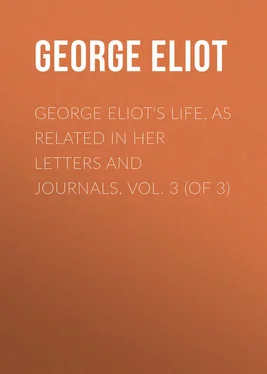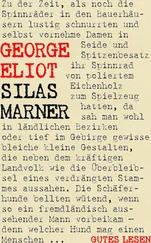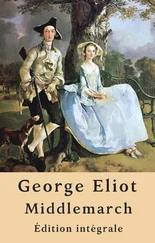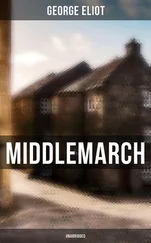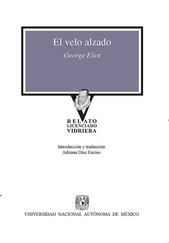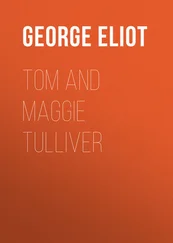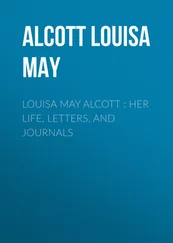George Eliot - George Eliot's Life, as Related in Her Letters and Journals. Vol. 3 (of 3)
Здесь есть возможность читать онлайн «George Eliot - George Eliot's Life, as Related in Her Letters and Journals. Vol. 3 (of 3)» — ознакомительный отрывок электронной книги совершенно бесплатно, а после прочтения отрывка купить полную версию. В некоторых случаях можно слушать аудио, скачать через торрент в формате fb2 и присутствует краткое содержание. Издательство: Иностранный паблик, Жанр: literature_19, foreign_antique, foreign_prose, на английском языке. Описание произведения, (предисловие) а так же отзывы посетителей доступны на портале библиотеки ЛибКат.
- Название:George Eliot's Life, as Related in Her Letters and Journals. Vol. 3 (of 3)
- Автор:
- Издательство:Иностранный паблик
- Жанр:
- Год:неизвестен
- ISBN:нет данных
- Рейтинг книги:4 / 5. Голосов: 1
-
Избранное:Добавить в избранное
- Отзывы:
-
Ваша оценка:
- 80
- 1
- 2
- 3
- 4
- 5
George Eliot's Life, as Related in Her Letters and Journals. Vol. 3 (of 3): краткое содержание, описание и аннотация
Предлагаем к чтению аннотацию, описание, краткое содержание или предисловие (зависит от того, что написал сам автор книги «George Eliot's Life, as Related in Her Letters and Journals. Vol. 3 (of 3)»). Если вы не нашли необходимую информацию о книге — напишите в комментариях, мы постараемся отыскать её.
George Eliot's Life, as Related in Her Letters and Journals. Vol. 3 (of 3) — читать онлайн ознакомительный отрывок
Ниже представлен текст книги, разбитый по страницам. Система сохранения места последней прочитанной страницы, позволяет с удобством читать онлайн бесплатно книгу «George Eliot's Life, as Related in Her Letters and Journals. Vol. 3 (of 3)», без необходимости каждый раз заново искать на чём Вы остановились. Поставьте закладку, и сможете в любой момент перейти на страницу, на которой закончили чтение.
Интервал:
Закладка:
Journal, 1867.
July 29. – We went to Dover this evening as the start on a journey into Germany (North).
Oct. 1. – We returned home after revisiting the scenes of cherished memories – Ilmenau, Dresden, and Berlin. Of new places we have seen Wetzlar, Cassel, Eisenach, and Hanover. At Ilmenau I wrote Fedalma's soliloquy after her scene with Silva, and the following dialogue between her and Juan. At Dresden I rewrote the whole scene between her and Zarca.
Oct. 9. – Reading "Los Judios en Espâna," Percy's "Reliques," "Isis," occasionally aloud.
Oct. 10. – Reading the "Iliad," Book III. Finished "Los Judios en Espâna," a wretchedly poor book.
Oct. 11. – Began again Prescott's "Ferdinand and Isabella."
Oct. 19. – George returned last evening from a walking expedition in Surrey with Mr. Spencer.
This entry is an interesting one to me, as it fixes the date of the first acquaintance with my family. Mr. Herbert Spencer was an old friend of ours, and in the course of their walk he and Mr. Lewes happened to pass through Weybridge, where my mother at that time lived. They came to dinner. Mr. Lewes, with his wonderful social powers, charmed all, and they passed a delightful evening. I was myself in America at the time, where I was in business as a banker at New York. My eldest sister had just then published a little volume of poems, 1 1 "An Old Story and Other Poems," by Elizabeth D. Cross.
which was kindly received by the press. On the invitation of Mr. Lewes she went shortly afterwards to see George Eliot, then in the zenith of her fame; nor did she ever forget the affectionate manner in which the great author greeted her. This was the beginning of a close friendship between the families, which lasted, and increased in intimacy, to the end. Mr. Spencer, in writing to tell me that it was he who first made Mr. Lewes acquainted with George Eliot, adds, "You will perhaps be struck by the curious coincidence that it was also by me that Lewes was introduced to your family at Weybridge and remoter issues entailed."
Letter to Miss Sara Hennell, 20th Oct. 1867.
Before I got your letter I was about to write to you and direct your attention to an article in the forthcoming (October) number of the Quarterly Review , on the Talmud. You really must go out of your way to read it. It is written by one of the greatest Oriental scholars, the man among living men who probably knows the most about the Talmud; and you will appreciate the pregnancy of the article. There are also beautiful, soul-cheering things selected for quotation.
Journal, 1867.
Oct. 31. – I have now inserted all that I think of for the first part of the "Spanish Gypsy." On Monday I wrote three new Lyrics. I have also rewritten the first scenes in the gypsy camp, to the end of the dialogue between Juan and Fedalma. But I have determined to make the commencement of the second part continue the picture of what goes forward in Bedmar.
Nov. 1. – Began this morning Part II. "Silva was marching homeward," etc.
Letter to John Blackwood, 9th Nov. 1867.
About putting Fedalma in type. There would be advantages, but also disadvantages; and on these latter I wish to consult you. I have more than three thousand lines ready in the order I wish them to stand in, and it would be good to have them in print to read them critically. Defects reveal themselves more fully in type, and emendations might be more conveniently made on proofs, since I have given up the idea of copying the MS. as a whole. On the other hand, could the thing be kept private when it had once been in the printing-office ? And I particularly wish not to have it set afloat, for various reasons. Among others, I want to keep myself free from all inducements to premature publication; I mean, publication before I have given my work as much revision as I can hope to give it while my mind is still nursing it. Beyond this, delay would be useless. The theory of laying by poems for nine years may be a fine one, but it could not answer for me to apply it. I could no more live through one of my books a second time than I can live through last year again. But I like to keep checks on myself, and not to create external temptations to do what I should think foolish in another. If you thought it possible to secure us against the oozing out of proofs and gossip, the other objections would be less important. One difficulty is, that in my MS. I have frequently two readings of the same passage, and, being uncertain which of them is preferable, I wish them both to stand for future decision. But perhaps this might be managed in proof. The length of the poem is at present uncertain, but I feel so strongly what Mr. Lewes insists on, namely, the evil of making it too long, that I shall set it before me as a duty not to make it more than nine thousand lines, and shall be glad if it turns out a little shorter.
Will you think over the whole question? I am sure your mind will supply any prudential considerations that I may have omitted.
I am vexed by the non-success of the serial edition of the works. It is not, Heaven knows, that I read my own books or am puffed up about them, but I have been of late quite astonished by the strengthening testimonies that have happened to come to me of people who care about every one of my books, and continue to read them – especially young men, who are just the class I care most to influence. But what sort of data can one safely go upon with regard to the success of editions?
"Felix Holt" is immensely tempted by your suggestion, 2 2 "Address to the Working Men."
but George Eliot is severely admonished by his domestic critic not to scatter his energies.
Mr. Lewes sends his best regards. He is in high spirits about the poem.
Journal, 1867.
Nov. 22. – Began an "Address to the Working Men, by Felix Holt," at Blackwood's repeated request.
Letter to Miss Sara Hennell, 22d Nov. 1867.
Yes, indeed – when I do not reciprocate "chaos is come again." I was quite sure your letter would come, and was grateful beforehand.
There is a scheme on foot for a Woman's College, or, rather, University, to be built between London and Cambridge, and to be in connection with the Cambridge University, sharing its professors, examinations, and degrees! Si muove.
Letter to Madame Bodichon, 1st Dec. (?) 1867.
I have written to Miss Davies to ask her to come to see me on Tuesday.
I am much occupied just now, but the better education of women is one of the objects about which I have no doubt , and shall rejoice if this idea of a college can be carried out.
I see Miss Julia Smith's beautiful handwriting, and am glad to think of her as your guardian angel.
The author of the glorious article on the Talmud is "that bright little man" Mr. Deutsch – a very dear, delightful creature.
Journal, 1867.
Dec. 4. – Sent off the MS. of the "Address" to Edinburgh.
Letter to John Blackwood, 7th Dec. 1867.
I agree with you about the phrase "Masters of the country." 3 3 In the "Address to the Working Men."
I wrote that part twice, and originally I distinctly said that the epithet was false. Afterwards I left that out, preferring to make a stronger argumentum ad hominem , in case any workman believed himself a future master.
I think it will be better for you to write a preliminary note, washing your hands of any over-trenchant statements on the part of the well-meaning Radical. I much prefer that you should do so.
Whatever you agree with will have the advantage of not coming from one who can be suspected of being a special pleader.
What you say about Fedalma is very cheering. But I am chiefly anxious about the road still untravelled – the road I have still zurück zu legen .
Читать дальшеИнтервал:
Закладка:
Похожие книги на «George Eliot's Life, as Related in Her Letters and Journals. Vol. 3 (of 3)»
Представляем Вашему вниманию похожие книги на «George Eliot's Life, as Related in Her Letters and Journals. Vol. 3 (of 3)» списком для выбора. Мы отобрали схожую по названию и смыслу литературу в надежде предоставить читателям больше вариантов отыскать новые, интересные, ещё непрочитанные произведения.
Обсуждение, отзывы о книге «George Eliot's Life, as Related in Her Letters and Journals. Vol. 3 (of 3)» и просто собственные мнения читателей. Оставьте ваши комментарии, напишите, что Вы думаете о произведении, его смысле или главных героях. Укажите что конкретно понравилось, а что нет, и почему Вы так считаете.
